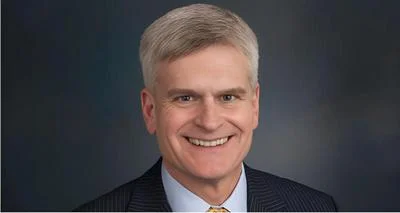WASHINGTON, D.C. - Income Security and Family Support Subcommittee Chairman Jim McDermott (D-WA), delivered the following statement today at a Ways and Means Subcommittee hearing on possible policy responses to long-term unemployment:
“We now have two story lines playing out for America’s unemployed - one promising and one very troubling.
“The good news is that we finally have job growth again. Each of the last five months has produced positive job gains, with a total increase in private-sector employment of nearly half a million jobs since the beginning of the year. By comparison, before we passed the Recovery Act last year, our economy was losing nearly three-quarters of a million jobs per month.
“It’s worth noting that over the entire eight years of the Bush Administration, our economy actually had a net decline in private sector employment. So I must say that I find it bewildering when my Republican colleagues say that more Bush-like policies, like tax cuts for the rich and deregulation, will spur more employment. We tried their way for eight years, and ended up with the worst economy in 70 years. Even with the recent progress in creating jobs, we still need to face up to a very big problem.
“To return to a pre-recession labor market, we need to create roughly 10 million new jobs, meaning we have to consistently produce hundreds of thousands of jobs every single month for about five years. This means that even under the most optimistic scenarios for our economy, many Americans will continue to struggle with prolonged periods of unemployment.
“Of course, if additional challenges slow down our recovery, the road will be even longer and harder. As I have said before, no one should expect that we will quickly escape the effects of the worst recession since the Great Depression. This is going to be a long haul. Nearly seven million workers have been unemployed for longer than six months - by far the highest number ever on record.
“These are hard working Americans who have played by the rules and lost their jobs through no fault of their own. They have spent their savings, and must face the daily fear that they will lose their home or fail to put food on the table. And now many of them will soon lose their last lifeline, unemployment benefits.
“We are at a high risk of abandoning millions of Americans who have worked hard and played by the rules, but now find themselves with no job, no savings and no support.
“Our first priority must be to maintain the current emergency federal unemployment benefits to prevent millions of workers from losing their benefits before the end of the year.
“I don’t understand how anyone can vote to increase the federal deficit by providing tax cuts to the wealthy or waging two wars without paying for them, and then turn around and say we cannot afford to help workers who have lost their jobs.
“The House recently passed an extension of benefits that will continue the program until the end of November, but the Senate has yet to act on the legislation. If we don’t pass this extension, about 1.2 million workers will prematurely lose unemployment benefits in June, and 5 million will lose benefits before the end of the year.
“We also must come to grips with the fact that even if we pass an extension of the program, as many as three million Americans will still exhaust all of the emergency benefits before the end of this year.
“People from all over the country call my office pleading for additional weeks of benefits as they desperately continue their search for work. They ask what will happen to them once their unemployment checks have stopped, and quite frankly, I don’t have an adequate response. And no one is calling my office because they are sitting at home and having a great time collecting their unemployment benefits.
“Contrary to what some of my colleagues contend, unemployment insurance is not stopping people from looking for work. Arguing that unemployment insurance prevents people from looking for work is a slap in the face to the millions of Americans who have applied to hundreds of jobs over the last two years only to be repeatedly rejected because of unprecedented competition in an economy in shambles.
“We know that many of those exhausting UI will have no equity in their homes to use as a source of support. While some may have another earner in the house, we know that many others surely won’t.
“The Temporary Assistance for Needy Families program is unlikely to provide much help to many of them given the program’s spotty record of providing assistance to even continually poor families. There is a temporary TANF Emergency Fund, a program that supports subsidized jobs, which we are trying to extend, but it would need considerably more funding to broadly help the coming wave of those about to exhaust UI benefits.
“I am asking our witnesses today to help us think about additional steps to help the long-term unemployed as they try to return to work. I hope all of you will provide us with specific recommendations, whether it is additional extended benefits, increased access to training, wage supplements to help with re-employment, direct employment through publically-funded jobs, or any other solutions you think will help these workers.
“Before I close, I want to highlight one of the hundreds of letters I received from unemployed workers in advance of this hearing.
A jobless worker from Atlanta writes:
‘I have emailed, faxed and personally handed out over 300 resumes and job applications in the Atlanta area. Everything from project coordinator positions to bag boy at a grocery store. In the time I have been unemployed, I have lost my home, all of my savings...and the ability to even put much of anything towards my son’s child support.
‘I have filed for bankruptcy and honestly, if it wasn’t for family allowing me to stay with them, I would be out on the streets. I honestly don’t know much longer I can go on without completely giving up.’
“Those comments sum up the issue we are confronting today. Every week, I read a newspaper editorial that argues we already are providing too many weeks of benefits for people who have lost their jobs.
“But I refuse to tell millions of Americans that we don’t care about what happens to them when they lose their unemployment benefits. We can’t just stick our heads in the sand and hope this problem goes away as millions of our fellow citizens watch the American dream slip through their hands.
“I now yield to the Ranking Member, Mr. Linder."








